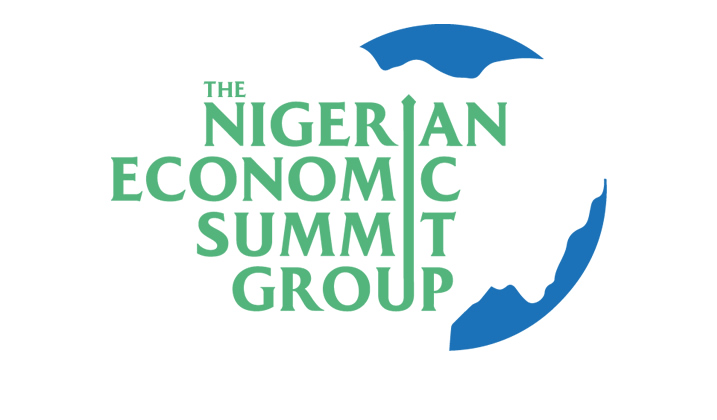728
By Daniel Adaji
African leaders from the private sector and philanthropy community have joined forces to confront the continent’s deepening education crisis.
The group have launched two coalitions aimed at ensuring every child acquires essential foundational learning skills.
The initiative, spearheaded by Human Capital Africa (HCA) in partnership with the Nigerian Economic Summit Group (NESG), the Aliko Dangote Foundation, and the African Philanthropy Forum, was unveiled at a high-level dinner in Abuja.
The event marked the formal launch of the African CEOs’ Coalition for Foundational Learning and the Africa Philanthropy Coalition for Foundational Learning, both designed to mobilise African-led solutions to bridge the education gap and reduce learning poverty across the continent.
In a statement shared with pointblanknews.com on Tuesday, HCA said nine out of ten children in Sub-Saharan Africa cannot read and understand a simple text by the age of ten — one of the highest rates of learning poverty in the world. Experts warn that this crisis, which goes beyond education, has become a human capital emergency.
The challenge is further compounded by shrinking international support. Global education aid is projected to decline by $3.2 billion between 2023 and 2026, representing a 24 per cent drop worldwide, and as much as 28 percent in Eastern and Southern Africa. This has heightened the urgency for domestic action and African-led collaboration.
Opening the conversation, Dr. Oby Ezekwesili, Founder and CEO of Human Capital Africa, said African leaders must take ownership of solving the crisis.
“We are here with the conviction that Africa-led philanthropy and private sector leadership can change the trajectory of education on our continent. They must become active participants in the process of fixing this time bomb. It is a solvable problem if we work together.
The message is clear: we can no longer depend on others to solve this challenge for us. Africa must lead, by mobilising domestic resources, designing solutions for our contexts, and building powerful partnerships that put foundational learning at the centre of our development agenda,” she stated.
In his remarks, Niyi Yusuf, Chairman of the Nigerian Economic Summit Group, underscored the economic rationale behind the coalitions.
“As business leaders it is in our enlightened self-interest to ensure our populations become a productive and innovative working class that can think, but most importantly thrive. When the foundation is weak, there is only so much you can build on top.
”By 2050 Africa will have 2.5 billion people, and the majority of them will be young people. They are not just the workforce of the future, they are the consumers of the future. If they can’t produce quality, if they can’t earn properly, they cannot consume. As the NESG, we would like to publicly commit to this work on foundational learning. The journey starts today,” he said.
Also speaking, Zouera Youssofou, CEO of the Aliko Dangote Foundation, affirmed the importance of prioritising foundational education for sustainable development.
“If you don’t get foundational learning right, nothing else will matter. That is the message that we need to keep repeating. We all know it. But we are not paying enough attention and we are not investing enough in it.
African philanthropies are in Africa, close to the beneficiaries of our work and aware of the context. There are things a local organisation can do that an outside organisation cannot. We have been the beneficiaries of foreign aid for too long. These are things that we must address ourselves,” he said.
In a keynote address, Dr. Tayo Aduloju, CEO of the NESG, stressed that money alone will not fix Africa’s education problem.
“This problem is so profound, because we can see that we are budgeting and spending our limited resources on building more schools, on employing more teachers, and we are told that just spending money solves the problem. It doesn’t. Our children are struggling to learn in a system that does not teach learning. Many of them are smart enough to realise that they are not learning, and that realisation is a key driver of our children leaving schools.
Learning poverty is a symptom of a nation of irresponsible adults. We have to solve for a generation of irresponsible adults that has left 20 million children out of school and more unable to learn. As the NESG commits to this coalition we must acknowledge that we cannot afford to fail. How we treat the child in the next decade will determine not just our competitiveness but our survival as a country and as a continent,” he stated.
Highlighting Africa’s untapped potential to fund its own development, Mosun Layode, Executive Director of the African Philanthropy Forum, noted that the continent possesses immense private wealth that could transform education outcomes if properly channelled.
“Africans have an estimated investable wealth of $2.7 trillion and the number of millionaires is expected to grow by 65% in the next decade. We have the wealth required to drive development on the African continent. We need to ensure our philanthropy is aligned with national plans, does not work in silos and invests its resources collaboratively in the areas that drive impact,” he said.



